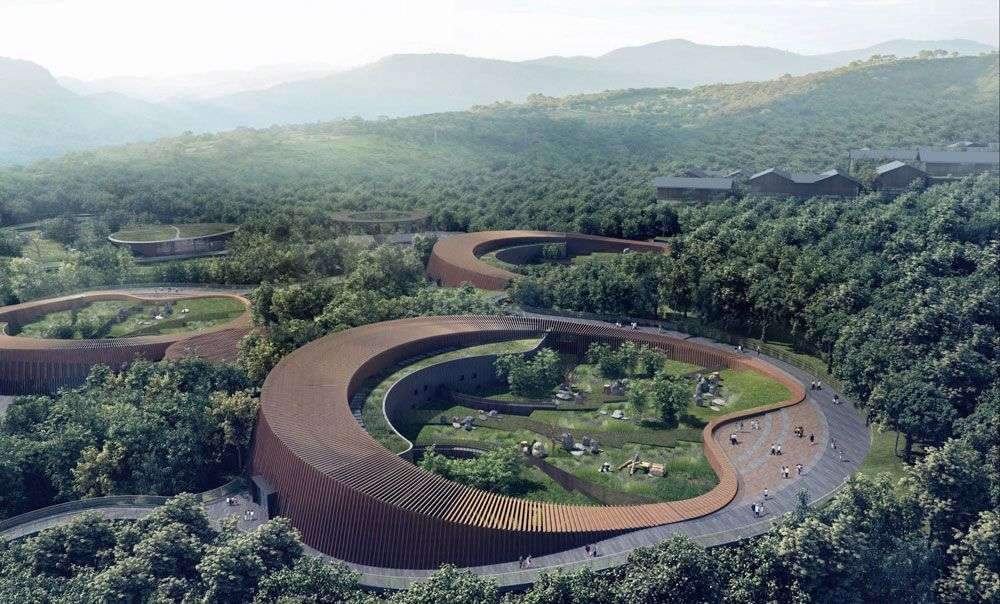The study of the mutual influences between the geographic environment and city planning approaches on human personality is a complex and multidimensional field. Research in the field of psychogeography indicates that factors such as location, climate, and cultural influences play a crucial role in shaping the behavior and psychological processes of individuals and societies. These factors interact with individuals’ psychological well-being, affecting various aspects of thinking, emotions, and social behavior.
Geographic locations play a prominent role in influencing human behavior through a complex interaction of environmental, cultural, and socioeconomic factors. For example, polluted and crowded urban areas contribute to higher levels of stress and attention problems, while rural areas face challenges such as social isolation and limited opportunities for communication. Natural disasters and extreme weather conditions are also linked to increased aggressive behavior and domestic violence, as well as their impact on mental health.
Understanding the geographic environment not only enhances our awareness of psychosocial dynamics, but also provides valuable insights for urban planning and design, enabling the creation of spaces that enhance well-being, social cohesion, and quality of life for residents.
In the theaters of history and the corridors of social life, the geographical dimension plays a pivotal role in shaping human behavioral and social personalities. The central question remains: How does the geographical environment surrounding us affect the development of our personalities and behaviors? Each city is characterized by unique geographical features that give a special character to its people. Over time, inherent social and behavioral traits that reflect the essence of the place are formed.
Reflecting on this context, ancient pilgrims discussed the differences in character and interactions between the people of Mecca, Medina, and Jeddah. In Mecca, which is surrounded by rugged mountainous terrain, its people were characterized by determination and strength of character, as the mountainous nature did not leave much room for flexibility and hesitation. On the other hand, we find the people of Medina, where flat and open lands prevail, and the qualities of flexibility and tolerance stand out among them. As for Jeddah, the gateway to the Red Sea and the meeting place for merchants, it instilled in its people the spirit of commerce, friendliness, and abundance of thought.
These observations are not mere generalizations but rather represent an analysis of how the social and behavioral traits of individuals are affected by their geographic surroundings. In this article, we delve deep into this dialectical relationship between geography and personality, exploring how the geographic environment of a city shapes the character of its residents and influences their social interactions and behavioral patterns. Through this exploration, we aim to provide a comprehensive view of the profound impact of geography on the human fabric
How do local climate and weather affect individuals’ social and psychological behaviors?
Climate greatly affects daily activities, social interactions, and even the mood of individuals. In colder climates, people may tend to spend more time indoors, leading to a more introverted lifestyle. In contrast, warm climates encourage outdoor activities and frequent social interactions.
How can city planning and infrastructure influence residents’ behaviors and relationships?
City planning plays an important role in determining how residents interact with their urban environment. Cities with well-developed infrastructure and green spaces encourage physical activity and social interactions. The lack of these facilities may reduce opportunities for social interaction and increase the sense of isolation.
What is the effect of population density in cities on the personal and behavioral development of individuals?
High population density may lead to increased tension and psychological pressure as a result of crowding and pollution. However, it can also provide greater opportunities for social interaction and exposure to cultural diversity, which promotes personal development and openness to new experiences. Life in dense cities requires adaptation and flexibility, and may lead to the development of communication and social interaction skills.
Research into the influence of geography and urban planning on human personality shows important results. Here is a summary of numbers and analysis:
The influence of the geographical environment: There is an increasing interest in studying the relationship between the psychological characteristics of individuals and the characteristics of the places in which they live. Studies show a renewed interest in understanding psychological phenomena based on their spatial distribution and interactions with macro-characteristics of environments.
Psychogeographic differences: Studies have been conducted that show unequal geographic distribution in several important factors such as mental health, happiness, and identity, which are fundamental issues in psychology.
Reasons for geographical differences: Geographic differences in psychological phenomena have been explained by three main mechanisms: selective migration, environmental influence, and social influence. These mechanisms look at how individual psychological characteristics influence the environment people choose to live in, and how external forces influence psychological processes and developments.
Cross-Cultural Research: Cross-cultural research shows that geographic clustering can have a significant impact on the development of psychological processes.
Regional psychological differences within countries: Studies show that there are regional psychological differences within countries, such as differences in individualism and collectivism across regions in the United States, and collectivism has been measured across Japanese and Chinese states.It has been demonstrated in studies that there are psychological differences between regions within the same country, such as variations in values of individualism and collectivism across regions in the United States. Additionally, collectivism has been measured amongst states in Japan and China.
Mind Matters – Mental health awareness with a visual
Information Robot enhancing digital interactions







